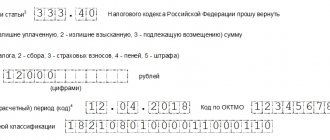Instead of a decision on the case, the party may face the court leaving the application without consideration. That is, the court will issue an act that will not resolve the dispute. But the civil case will end. However, the undoubted advantage of this situation is that the parties retain the right to go to court with the same claim. Unlike situations where the case is terminated.
What to do if the court left the application without consideration? It is necessary to carefully study the grounds. There is an opportunity to cancel leaving an application without consideration. And perhaps this action will save time before the court makes a decision.
Download:
Application for cancellation of determination without consideration
When the court leaves the application without consideration
The grounds for leaving a statement are situations when:
- The plaintiff, before filing the claim, did not apply for a pre-trial dispute resolution procedure, which is mandatory. That is, such an order is established by law.
- a claim (application) was filed by a citizen declared legally incompetent. In addition to filing an application for recognition of legal capacity, for the restoration of a missed procedural deadline in cases of recognition of incompetence;
- the same case (between the same parties, on the same subject and basis) is already being considered by a court of general jurisdiction, an arbitration court;
- the application was submitted and signed by an unauthorized person (representative);
- the parties have previously agreed to consider the dispute by an arbitration court (either party can declare this and this should be the first statement in court)
- during the consideration of the case (but before making a decision), the participants entered into an agreement to apply to an arbitration court
- both parties failed to appear in court on the second summons. And they did not file an application for the case to be heard in their absence
- The plaintiff on the second summons did not appear in court and did not ask to consider the case in his absence. But the defendant did not demand to consider the case on its merits.
Another comment on Article 223 of the Code of Civil Procedure of the Russian Federation
1. Leaving an application without consideration does not resolve the civil case on its merits. In this regard, the court is obliged to make a ruling. It is decided in the deliberation room and after that must be immediately announced at the court hearing. A ruling to leave an application without consideration can also be made at a preliminary court hearing when preparing the case for trial (part 4 of article 152 of the Code of Civil Procedure, paragraph 34 of the Resolution of the Plenum of the Armed Forces of the Russian Federation dated June 24, 2008 N 11).
This is important to know: Cancellation of security for a claim in civil proceedings
The content of the definition must comply with the requirements of Art. 225 Code of Civil Procedure. The judge must pay special attention to the reasoning part of the ruling, in which it is necessary to indicate the grounds for leaving the application without consideration, evidence confirming these grounds, and the rules of law that guided the court.
Due to the fact that the grounds for returning the application specified in Art. 135 of the Code of Civil Procedure, and the grounds for leaving the application without consideration are almost identical, the motives for the determinations in both the first and second cases must coincide.
The need to indicate the reasons for leaving the application without consideration and the rules of law that guided the court in this case is also required because at the end of the proceedings in the case under paragraph. 2 and 3 tbsp. 222 of the Civil Procedure Code, the state fee paid by the applicant is subject to refund.
If the application is left without consideration on the grounds specified in paragraph. 2 tbsp. 222 of the Code of Civil Procedure, it is necessary to indicate the body to which to contact for preliminary pre-trial settlement of the dispute.
If the application is submitted to the court by an incompetent person (paragraph 3 of Article 222 of the Code of Civil Procedure), the determination indicates the reason for leaving the application without consideration: failure to reach the age limit required to apply to the court (Parts 3 and 4 of Article 37 of the Code of Civil Procedure), or the presence of a judicial decisions to recognize a citizen as having limited legal capacity or incapacity. In addition to these facts, the definition specifies how errors made by legally interested persons in exercising the right to judicial protection should be eliminated.
2. In the ruling, the judge is obliged to explain to the interested parties their right to appeal to the court again after they have eliminated the circumstances that served as the basis for leaving the application without consideration (Part 2 of Article 223 of the Code of Civil Procedure). So, if the application was left without consideration on the grounds specified in paragraph. 7 and 8 art. 222 of the Code of Civil Procedure (failure to appear by the parties or the plaintiff), the court should note in its ruling that the proceedings may be resumed provided that the persons who did not appear provide evidence to the court confirming the valid reasons for their failure to appear at the court hearing and the impossibility of reporting them to the court.
3. The decision to leave the application without consideration prevents the further progress of the civil case. Therefore, it can be appealed by interested parties. At the same time, the law establishes two procedures for appealing and canceling them:
a) determinations to leave the application without consideration, made on the grounds specified in paragraph. 7 (failure of the parties to appear) and 8 (failure of the plaintiff) Art. 222 of the Civil Procedure Code, are canceled only at the request of the plaintiff or defendant by the court that made these determinations;
b) court rulings refusing to satisfy the above-mentioned requests of the parties and rulings made on all the grounds listed in Art. 222, 263, 298 and 315 of the Code of Civil Procedure are appealed to a higher court by filing a private complaint by the interested party, and by the prosecutor by submitting a presentation (Part 1 of Article 3 and Part 1 of Article 371 of the Code of Civil Procedure).
What does leaving an application without consideration mean?
The court, having established the existence of grounds not to consider the claim (application), issues a ruling. He must cite the specific circumstance that caused the issuance of such an act. And why they interfere with making a reasoned and legal decision in the case.
The court's ruling will come into force according to the general rules. Since it prevents further consideration of the case, a private complaint may be filed against it. The participant in the case must decide for himself what will be more profitable for him. Leaving an application without progress does not prevent a repeated application to the court. Therefore, it is often easier to file a new claim. How to come up with a justification for violating the procedure for issuing a ruling to leave without consideration.
Leaving a claim without consideration in arbitration
The grounds and consequences of leaving an application in the arbitration court without consideration are established by Art. 148 and art. 149 Arbitration Procedure Code of the Russian Federation.
Most of the grounds are the same as in civil proceedings (the first five listed above). But there are also special ones, characteristic only for the arbitration process:
- The case is considered to be an establishment of legally significant fact(s), but a dispute has arisen about the law.
- A claim has been filed that must be considered in bankruptcy proceedings.
- A claim has been filed for the recovery of legal costs, and this appeal must be considered according to the rules of Art. 112 of the Arbitration Procedure Code of the Russian Federation, and not in the usual claim procedure.
Unlike the Code of Civil Procedure of the Russian Federation, the Arbitration Procedure Code provides for the possibility of leaving a claim without consideration on other grounds that are established by procedural law. Here we are talking about applications for which, taking into account the subject matter, certain features of their consideration and resolution are defined.
The consequences of leaving a claim without consideration in the arbitration process are similar to those established for civil cases.
How to cancel
In addition to a private complaint, a party to the case may file an application to cancel a previously issued ruling. To the same court that sentenced him. And only when it was issued for the following reasons:
- the parties (both) did not appear in court for the second summons and did not file an application for the hearing of the case in their absence
- The plaintiff in the secondary summons did not appear in court, did not ask to consider the case in his absence, and the defendant did not demand to consider the case on its merits.
The applicant must prove that he had valid reasons for not appearing in court. This could be illness, business trip, change of residence, etc. But not only. It is also significant that the applicant could not communicate the existence of such reasons to the court. That is, there were such circumstances that he objectively could not inform the court about the impossibility of appearing at the court hearing. The interested person may appeal the court's decision to refuse to satisfy the petition to cancel leaving the application without consideration.
Commentary on Article 223 of the Code of Civil Procedure of the Russian Federation
1. A ruling to leave a claim without consideration is issued by the court in the form of a separate act in writing and must comply with the requirements established by Chapter. 20 Civil Procedure Code.
In the content of the definition, in addition to the information established by Art. 225 of the Code of Civil Procedure, the court is obliged to indicate ways to eliminate those listed in Art. 222 of the Code of Civil Procedure of the Russian Federation, circumstances that impede the consideration of the case and served as the basis for leaving the claim without consideration. This provision is an important addition to the guarantees of equality of parties in civil proceedings and the real possibility of the parties exercising their procedural rights. According to the current Civil Procedure Code, the court is obliged to indicate to which jurisdictional body it is necessary to apply for a preliminary resolution of the dispute, the timing of such an application, who has the right to be a representative of an incapacitated person and file a claim on his behalf, how the statement of claim should be drawn up, etc.
The court is also obliged to explain the consequences of leaving the application without consideration for the persons participating in the case.
In the operative part of the ruling on leaving the claim without consideration, the court may resolve issues regarding the distribution of legal costs and the return of paid state fees, if the basis for issuing the ruling is para. 2 tbsp. 222 Code of Civil Procedure. This provision acquires special significance, since the issuance of this determination ends the trial of the case.
Copies of the ruling to leave the statement of claim without consideration are sent to all persons participating in the case in accordance with Ch. 10 GPC.
2. One of the differences between leaving a claim without consideration and terminating the proceedings (in addition to the grounds for application, the application procedure) is the legal consequences of the use of these institutions. Leaving a claim without consideration does not prevent the interested party from again filing an application in court in the general manner after eliminating the circumstances that served as the basis for leaving the claim without consideration. Termination of proceedings in the case prevents a person from re-applying to the arbitration court in a dispute between the same parties, about the same subject and on the same grounds.
The legal consequences of leaving a claim without consideration also apply to issues of limitation. If the claim is left without consideration, then the running of the limitation period that began before the filing of the claim by the claim filed and left without consideration is not interrupted and continues to flow in the general manner.
3. The plaintiff or defendant has the right to file a petition for the court to cancel the ruling to leave the claim without consideration if it was made on the grounds specified in paragraph. 7 and 8 art. 222 Code of Civil Procedure. The law does not provide the opportunity to independently raise this issue for discussion and resolution by the court. The parties must, in the petition, indicate the validity of the reasons for missing the court session, provide evidence confirming these statements, and also confirm the impossibility of reporting this to the court at the time of the missed court session.
The submitted petitions are resolved by the court in the general manner, of which the persons participating in the case are notified. Based on the results of consideration of received petitions, the court may cancel a previously issued ruling to leave the claim without consideration if it recognizes the reasons for the party’s failure to appear as valid. Otherwise, the court refuses to satisfy the stated requests. A court ruling refusing to satisfy such a petition can be appealed privately - by filing a private complaint with a higher authority.
An appeal against a ruling to leave an application without consideration is possible in the general manner in the appellate, cassation and supervisory authorities in accordance with the current procedural legislation, since this ruling impedes the progress of the case (see commentary to Articles 331, 371 of the Code of Civil Procedure).
The concept of leaving a case without consideration
According to the civil law legislation in force in the Russian Federation, leaving an appeal without consideration is one of the possible forms of completing judicial proceedings, in which the dispute between the parties is not considered on the merits and a decision is not made.
See also in this article how to behave correctly in court.
A sufficient argument is the statement that these shortcomings have been eliminated.
Read here what is needed to appeal a court decision.
The only basis for refusal in such cases is violation of certain procedural conditions.
The rules governing these issues are contained in Chapter 19 of the Civil Procedure Code of the Russian Federation (Articles 222–223), as well as in Art. Art. 148–149 of the Arbitration Procedure Code of the Russian Federation.
Solutions
Once documents indicating the cause have been sent to all parties, the court terminates the proceedings. This can happen at any stage, because... During the entire procedure, the plaintiff’s appeal and the attached documents are studied.
However, the applicant has ways to solve the problem if the claim was left without consideration:
- File an appeal. However, it is necessary to provide evidence that would confirm that the court made an incorrect decision, because he did not have the full amount of information or interpreted the actions incorrectly.
- Prudently change the places where deficiencies were found and re-apply to the judicial authorities.
- Give up the idea. This option is suitable if the parties have agreed to refer the case to arbitration. As a result, the jurisdiction to which citizens are obliged to adhere changes.
- File a motion to continue the review. This method is practiced in situations where a person did not appear at two meetings, although he was notified of them. The plaintiff must petition the court to reopen the process, providing good cause in writing.
However, it is worth remembering that each case is individual and is considered differently. There is a time limit for appealing the decision, usually 15 days. However, it is not always possible for a person to file a claim after such a refusal. If the dispute is being considered in arbitration, it is better to become familiar with such situations and their consequences in advance. Typically, appealing a judicial decision is limited.
What will happen next
Before transferring the case to appeal, the first court gives opponents a certain time to file their objections on the merits of the private complaint. After this, you should wait for the date of the court hearing, which must be notified by the appellate authority.
We recommend! If the court refused to impose interim measures, what to do and how to prepare a private complaint against the refusal to seize property
The legislation states that a private complaint against a decision of a court of general jurisdiction to leave an application without consideration is considered for two months with all interested parties invited to the courtroom.
Based on the results, a decision is made either to leave everything as is or to cancel the determination. The latter means that the first instance will be obliged to continue consideration of the case on its merits.
It is also important to add that the verdict of the court of appeal regarding the filed complaint immediately comes into force.
Expert commentary
Kosykh Tatyana Viktorovna
Lawyer, registration number No. 50/8948 in the register of lawyers of the Moscow region.
Ask a question
Of course, everyone is free to decide for themselves whether to file a private complaint or bring a new claim and begin to sort things out with their opponent first. A lawyer will help you make the right choice, taking into account all the circumstances of the case, the statute of limitations and previous relationships between the parties.
What does it mean
Leaving an application without consideration occurs both in courts of general jurisdiction and in arbitration courts.
The procedure for leaving a claim without consideration is intended to eliminate the mistake that was made when accepting it and to terminate the proceedings.
This institution is most widespread in the courts of first instance. The legislation does not prohibit courts of appeal, cassation, etc. instance to cancel the decision of the previous court and leave the application without consideration.
This happens if errors were made when accepting the application, but despite this it was considered and as a result a decision was made on it.
Acceptance of claims
The plaintiff, when filing a claim in court, must understand that the mere fact that the court has received an application does not automatically trigger the process of paperwork and consideration of the dispute.
Based on the results of checking the application, the court makes one of the following decisions:
Legal standards
The list of reasons why the court may leave an application without consideration is given in the legislation, in particular it is present in Article 222 of the Code of Civil Procedure of the Russian Federation.
For cases that fall within the jurisdiction of arbitration courts, it is given in Article 148 of the Arbitration Procedure Code of the Russian Federation.
In no case can the above lists of grounds be expanded by the court, since they affect the essential interests of the parties to the dispute, and in particular the plaintiff.
The lists of reasons are exhaustive and other reasons cannot be grounds for leaving a claim without consideration.
According to the law, if one of the parties does not agree with the court’s decision to leave the claim without consideration, then it has the right to appeal to a higher court with a complaint and cancel the decision.
Important! A claim left without consideration does not deprive the plaintiff of the right to re-apply to the court for protection of violated rights.
Video: reasons for returning statements of claim from court
Consequences for the parties
Only pending applications can be left without consideration.
Important! This definition should not be confused with return or abandonment. These concepts can only be applied before the claim is launched into office proceedings!
Legislatively, the following consequences come into force for the parties involved in the process:
- Proceedings on the claim are completed.
- It is possible to resume the consideration of the case if the errors that led to the closure of the process are corrected.
- If you disagree with the court's decision, you can file a complaint with higher authorities.
In some cases, the applicant intends to seek termination of the process, ignoring the recommendations of the court. In other cases, interested parties can resume proceedings by eliminating procedural errors or appealing a court ruling.
Appealing a court decision
To cancel a court decision, an appeal is filed to higher judicial authorities within fifteen days. The facts in the complaint must be presented consistently and to the point. The main emphasis must be placed on non-compliance with the law and it is imperative to provide evidence confirming this.
Attention! The appeal is considered within sixty days from the date of filing and all parties who are interested in resuming the proceedings are invited to the meetings. The decision of the appeal court comes into force immediately.
When the trial is revived, the procedural deadlines are also renewed. The new review will take into account the previous limitation period.
Refund of state duty
When the claim is of a property nature, the state duty can be quite significant due to the high value of the disputed property.
To return the paid tax, you must provide the following documents to the tax service:
- Certificate of leaving the claim without consideration (obtained in court).
- Passport.
- Application for refund of state duty.
If the plaintiff does not intend to resume the lawsuit, then he can count on the return of the amount spent.
Rules for drawing up a petition
A petition to leave a filed claim without consideration is drawn up in free form. The law does not stipulate special requirements for the execution of a procedural document. However, in practice certain requirements have developed. This is due to the fact that courts often have to deal with documents whose contents cannot be taken seriously.
Form requirements:
- written form;
- clear and readable handwriting;
- business style;
- specifics, no water.
Can be printed or handwritten. The petition can be written directly at the court hearing, if there is time.
The request can be expressed orally, but the court will require the provision of a written document, since it must be attached to the case.
Content requirements:
- the text is divided into parts;
- requisites;
- base;
- date and place of compilation.
Conventionally, the text of the petition can be divided into three parts:
- introductory;
- main;
- final.
The introductory part contains details. This is mandatory information about the parties to the dispute and the court in which the case is being heard. Without details, there is no legal force of the document. The data is written in the upper right corner of the page. After writing the details, the title of the text follows. The name of the document is written in the center.
Don't forget to write down the case number. Judicial officials can easily confuse documents. The number will not allow them to do this.
The main part contains the circumstances referred to by the applicant. They prove specific grounds on which the claim can be left without consideration. Otherwise, the request will not be granted. It is necessary to refer and explain to the court why the plaintiff’s demands should be ignored. Here it is also necessary to show the legal justification, that is, references to laws and other acts.
The final, or pleading, part contains the applicant’s request to the court. It begins with the words “Please...”. Next comes the request itself, that is, leaving the statement of claim without consideration.
At the end of the text there is a signature and date of compilation. It is recommended to make a separate “Applications” section in front of them. In practice it is almost always present. In 99% of cases, the applicant must refer to the facts to prove the impossibility of considering the case. For example, if the plaintiff is incapacitated, then a reference to a mental health certificate can be made. Of course, if it is available.
Consequences of failure to comply with the procedure for going to court
Paragraph 2 art. 222 of the Code of Civil Procedure of the Russian Federation provides for a case of violation of the so-called conditional jurisdiction, the essence of which is that a civil case becomes the subject of consideration by the court only if it is previously settled out of court.
The claim procedure for resolving a dispute established by law or provided for by the parties to the contract refers to one of the cases of pre-trial conflict resolution. Thus, a mandatory claim procedure for dispute resolution is established for a requirement to change or terminate a contract, according to which a claim to change or terminate a contract can be filed by a party in court only after receiving a refusal from the other party to the proposal to change or terminate the contract or failure to receive a response within the period specified in proposal or established by law or contract, and in its absence - within 30 days. Compliance with the claims procedure for resolving a dispute is also necessary when presenting claims against the carrier arising from the contract of carriage, as well as those related to the provision of services by communications organizations.
According to para. 3 tbsp. 222 of the Code of Civil Procedure of the Russian Federation, continuation of the consideration of the case becomes impossible if, after the application is accepted, it is established that it was brought to court by a person who by that time was or was declared incompetent.
The incapacity of a person is determined in accordance with the requirements of civil law and civil procedural law.
To confirm the applicant's incapacity due to age, a birth certificate is presented. It should be borne in mind that in cases provided for by law, in certain categories of cases, minors have the right to personally defend their rights and interests protected by law in court, and also take into account the possibility of declaring a minor who has reached sixteen years of age fully capable (emancipation). Thus, in the event of a violation of the rights and legitimate interests of a child, including in the event of non-fulfillment or improper fulfillment by parents (one of them) of the responsibilities for raising, educating the child, or in the event of abuse of parental rights, a child who has reached fourteen years of age has the right to independently seek protection in court .
USEFUL INFORMATION: Financial assistance from the employer in 2020
The incapacity of a person recognized as incompetent due to a mental disorder is confirmed by a court decision that has entered into legal force. Leaving an application without consideration is possible if it was submitted by a person who is already incapacitated. If you lose legal capacity after the initiation of a case, the consequences provided for in Art. 215 of the Code of Civil Procedure of the Russian Federation, namely: the proceedings in the case are suspended until a representative is appointed to the incapacitated person.
The establishment of guardianship in the form of patronage over a legally competent person does not deprive the latter of the opportunity, on his own behalf, to go to court for the protection of his rights and interests protected by law. If an application submitted by an incompetent person is left without consideration, the legal representative of the latter has the right to apply to the court with a similar application in the interests of the ward.
The application also remains without consideration if it is filed in court on behalf of the interested person by another person who does not have the authority to conduct the case.
By virtue of Art. 48 of the Code of Civil Procedure of the Russian Federation, persons participating in the case may conduct their affairs through representatives. Representation, regardless of the type of judicial representation (contractual, public, legal, statutory), must be properly formalized. An appeal to court by a person who is not a representative and, therefore, does not have the right to perform any procedural actions on behalf and in the interests of the represented person, becomes a violation of the principle of discretion, which consists in the ability of persons participating in the case to dispose of their substantive and procedural rights, as well as means their protection at its discretion.
At the same time, procedural legislation provides for cases when other persons have the right to apply to the court on their own behalf, but in defense of others’ rights and interests protected by law. The application of such persons cannot be left without consideration.
The basis for leaving an application without consideration may be the receipt by the court of a claim that is already being processed by the same or another court, coinciding in terms of the subject and the basis. If an identical dispute has already been considered and there is a court decision that has entered into legal force or a ruling on the acceptance of a waiver of the claim or on the approval of a settlement agreement between the parties, then the proceedings on the case erroneously accepted for trial are subject to termination.
USEFUL INFORMATION: Dismissing an employee for absenteeism: step-by-step instructions
NEW STATEMENTS:
- Article 390.17 of the Code of Civil Procedure of the Russian Federation. Entry into force of a ruling by the judicial panel of the Supreme Court of the Russian Federation, issued following the consideration of a cassation appeal or presentation
- Article 390.16 of the Code of Civil Procedure of the Russian Federation. Determination of the judicial panel of the Supreme Court of the Russian Federation
- Article 390.15 of the Code of Civil Procedure of the Russian Federation. Powers of the Judicial Collegium of the Supreme Court of the Russian Federation
- Article 390.14 of the Code of Civil Procedure of the Russian Federation. Grounds for the cancellation or modification of judicial decisions by the judicial panel of the Supreme Court of the Russian Federation in cassation proceedings
- Article 390.13 of the Code of Civil Procedure of the Russian Federation. Limits of consideration of a case by the judicial panel of the Supreme Court of the Russian Federation
Application for reopening a case left without consideration
An application to reopen a case left without consideration is drawn up in accordance with the general requirements for the procedure for preparing documents in court.
Mandatory items are : full indication of the name of the judicial authority, as well as full name, address, contact telephone number and e-mail (if available) of the applicant himself and his position in the case.
The following are listed : the date of the ruling, the names of the parties and the essence of the claims, the essence of the ruling issued by the court and an explanation of the valid reason for non-compliance with the requirements that were an obstacle to the successful completion of the process.
The petition must indicate the reasons why the process was left without consideration.
Further, based on Art. 223 of the Civil Code of the Russian Federation, the applicant submits a request to cancel the judge’s ruling.
See in this article how to correctly draft an appeal against the reversal of a decision of the first instance court.
The list of documentary evidence attached to the application must be indicated at the end.
So, based on procedural law, there are legitimate opportunities to leave the case without consideration.
The defendant has the right to file a petition in connection with the plaintiff’s violation of the pre-trial procedure for resolving the dispute.
The judge himself may also act as an initiator, for example, due to the plaintiff’s absence from two consecutive hearings.
This is important to know: Writing off debt after the statute of limitations expires
In case of disagreement, there is the right to refer to Article 223 of the Code of Civil Procedure of the Russian Federation and demand the cancellation of the determination.
It is necessary to provide convincing evidence of the impossibility of your arrival in the courtroom and the absence of ways to warn the judge about this in a timely manner.
The plaintiff (applicant) has the right to file an application to reopen a case left without consideration (in accordance with Articles 331 and 223 of the Code of Civil Procedure and Article 148 of the Arbitration Procedure Code).
However, he must first eliminate these shortcomings. These requests are considered in the general manner.





